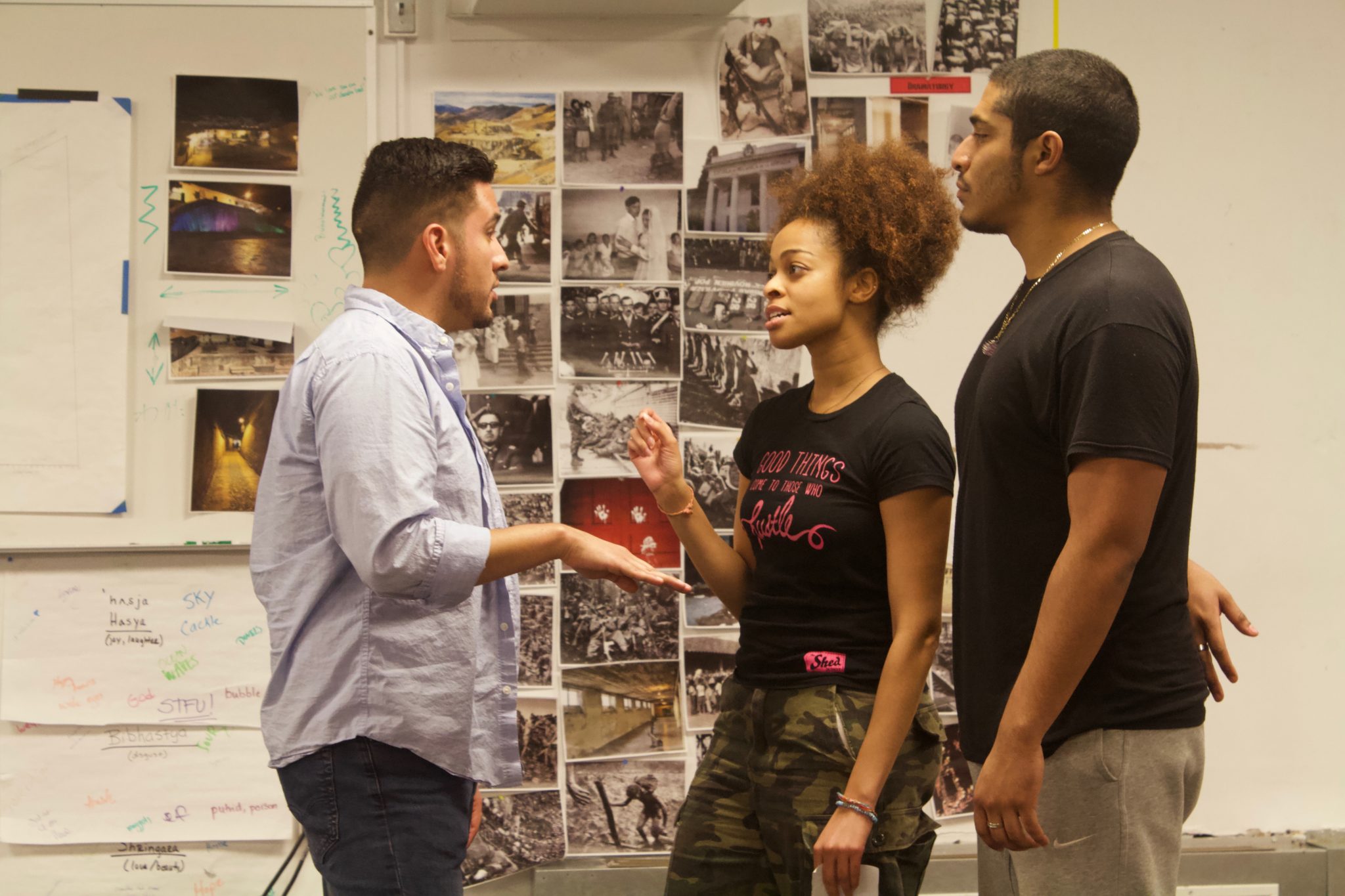
Emily Duncan Wilson
In his second year at the Yale School of Drama, Jecamiah Ybañez DRA ’19 pitched two projects with the hope that one of them would be selected for the Yale School of Drama Series this year. After a rigorous selection process, his proposal for “Seven Spots on the Sun” by Martín Zimmerman was chosen by directing faculty and will debut at the Yale Repertory Theatre next week.
“Seven Spots on the Sun” depicts the South American village of San Isidro, where civil war has caused mass devastation and a new plague has begun to afflict the village’s children. A doctor named Moises has shut himself away after his wife was brutally murdered by enemy soldiers and is forced to return to assist with the outbreak.
Teasing further, the Yale School of Drama’s website hints, “Moises discovers he has extraordinary healing powers. But can he help those who destroyed his world? In ‘Seven Spots on the Sun,’ magic realism, myth, and history converge in a passionate examination of what it costs to heal the wounds of war.”
This magic and myth do not come easy, however. Ybañez confirmed that there are challenges in presenting this kind of work on stage, but that “it invites you to be creative, it invites you to take risk, and that’s what we should be doing as theater-makers.”
Speaking to our role as spectators witnessing the larger narrative that is explored within the text, Ybañez also noted: “We’re very used to, as Americans, to being the center of conversations — politically, culturally, economically — and one of the power dynamics we have by way of being the center of it is that we don’t really have to consider how our actions impact the world.”
“We should consider that,” Ybañez said, “and we should decentralize ourselves from time to time to consider how our actions have an impact. For me, this play does just that.”
Now a third-year MFA candidate, Ybañez is a Tejano from Poteet, Texas. Emphasizing the role of marginalized voices, he acknowledged that “Seven Spots on the Sun” is a South American story told for an American audience. In his production, he hopes to question “what role we have to play in this story about a community that experienced intercommunal trauma and is having to deal with the delay of justice.”
The production has recently begun tech rehearsals, an intense weeklong process that marks the final preparation for opening night on Dec. 13. “Tech is my favorite part,” Ybañez mused. “As a director, this is my jam.”
Although the long hours of tech rehearsal can be rigorous for anyone, Ybañez is not alone. Zak Rosen ’20, an undergraduate who studies theater and ethics, politics and economics, serves as Ybañez’s assistant director. Rosen was a member of the ensemble for another Yale School of Drama Series production this fall, “shakespeare’s as u like it,” directed by Emma Weinstein. His repeated involvement with the graduate school is atypical, according to Caitlin Griffin, the senior associate director of marketing and communications for the Yale School of Drama and the Yale Rep. Rosen suggested that this valuable opportunity became accessible to him as a result of outreach on the part of the Theater Studies Department at Yale, which had reached out to theater studies majors about assistant directing thesis productions.
“I had decided last spring that I was interested in working on one of the thesis productions,” he recalled.
“I read ‘Seven Spots,’ and I was really struck by a lot of the poetry in the play [and] the beauty in the language,” Rosen remarked.
Ybañez agreed, explaining that “the poetry is functioning in a way to give us the gravity of the stakes.”
Ybañez also spoke to the role of the Spanish language in the production, commenting that “in reality, we’re watching South Americans who are speaking Spanish to each other, and it’s only through the convention of theater that we hear it as English.”
“It’s important for us to have to dig into the circumstances of people who are not typically represented, who are not typically given an entire show … that’s important.”
“Seven Spots on the Sun” will be performed from Thursday, Dec. 13, through Tuesday, Dec. 18. All performances will be open captioned with surtitles.
“The show is an epic theatrical poem — visually, linguistically, dramatically,” Ybañez said. “Coming in ready to experience that, with your heart open to the powers of poetry, would put any audience member in just the right seat to see and take in the play.”
Alexus Coney | alexus.coney@yale.edu .







